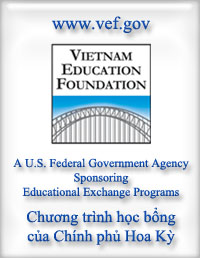------------------------------------------
Participatory Impact Pathway Workshop
ADB Postharvest Project,
21-24 April 2009
Venue: Hotel Cao Su, VUNG‑TAU
Rationale
IRRI’s new ADB funded postharvest initiative has the objective to scale out these postharvest innovations, which have been piloted in the limited number of villages, to a large number of farmers. The objective is to reach a minimum of 300,000 households in three countries (
In order to facilitate the dissemination of the proven technologies listed above, the project will strengthen country postharvest innovation systems by facilitating in-country Learning Alliances. These Learning Alliances can be understood as the platforms for working with established national partners from the public research and extension systems and for embracing new partners, especially from the private sector and NGOs. The Learning Alliances will seek to widen stakeholders’ choice of technologies and business models, foster adaptation and innovation and, through regular reflection, lead to better understanding of what works where and why. Regular cycles of experimentation, reflection and adaptation is expected to promote interaction and learning among members. The Learning Alliances are expected to (1) increase diversity of options (through prototyping and experimentation), (2) increase interaction among stakeholders (through regular group reflection), and (3) improve stakeholders’ ability to identify and choose what works (through research). We expect that they will provide more flexible and more participatory means for project management and the possibility to accommodate new partners.
Objectives
· Clarify project objectives, its planning logic and guiding principles in
· Identify key stakeholders, their roles and foster ownership of the project amongst different stakeholders.
· Identify the project’s impact pathways (i.e. project strategies to bring about specified changes) and document inputs to develop an impact evaluation plan.
· Clarify the Learning Alliance concept and reach agreement on the next steps to launch one in
Workshop deliverables
· Identification of likely members of the Vietnamese Postharvest Learning Alliance
· Identification of draft list of topics for investigation by the Learning Alliance, the inquiry/ experimentation needed and initial allocation of responsibilities (this would be firmed up after the workshop).
· Description for the project short-term expected changes resulting from project activities, and longer-term contribution to developmental impact in
· Network maps showing who is working with whom (useful for planning and monitoring sector level integration).
· Project vision for five years
· Draft action plan with activities for year one.
· National learning alliance consisting of key stakeholders from private and public sectors (after the workshop)
The PIPA process
A major component of the workshop will be a Participatory Impact Pathways Analysis (PIPA) which follows the road map shown in Figure 1. Guided along certain questions a group of project participants and stakeholders describe what they think is going to happen in their project’s and beyond. This is done by looking at two things: 1) the main problem the project tries to solve and asking why this problem exists, and 2) the stakeholders their relationships and influences.
Project impact pathways specify who needs to change for the project to achieve its vision and what the project has done / needs to do, to achieve those changes. The changes are quantified as far as possible as a way of predicting actual and future project impacts as well as providing the basis for an evaluation plan. Through the PIPA process key leverage points will be identify for achieving these changes as a basis for the activities of the Learning Alliance. All this will be captured in a so-called outcomes logic model (
Workshop Languages
Vietnamese is acknowledged as the working language for the participants and the workshop. However, English is in the background the basis of the theoretical concept and it will be necessary to capture the results for the project coordination and communication with the donor in English. Presentations will have a Vietnamese and an English text version. Discussion will be mostly in Vietnamese. The “screen visual translator” conveys the discussion content to IRRI participants. Likewise, opinions/ comments from IRRI participants are conveyed to Vietnamese participants on the screen.
Page count: 4017
Last modify: 09-05-2016



.gif)
